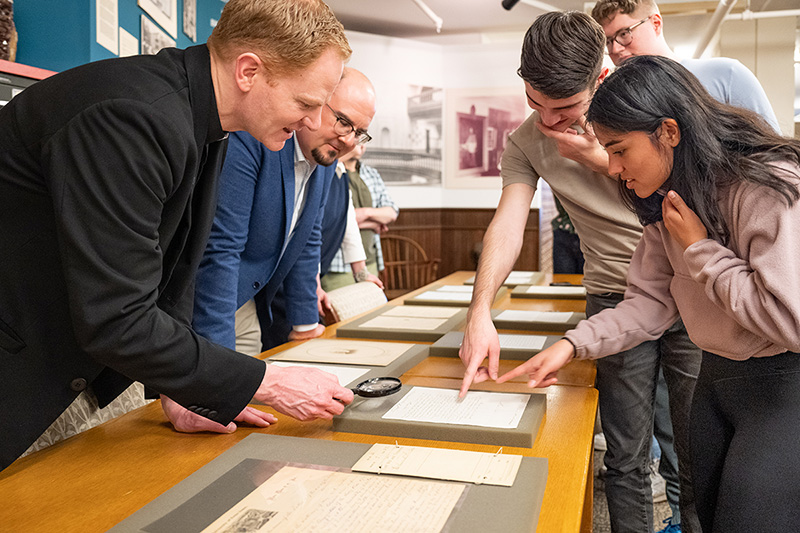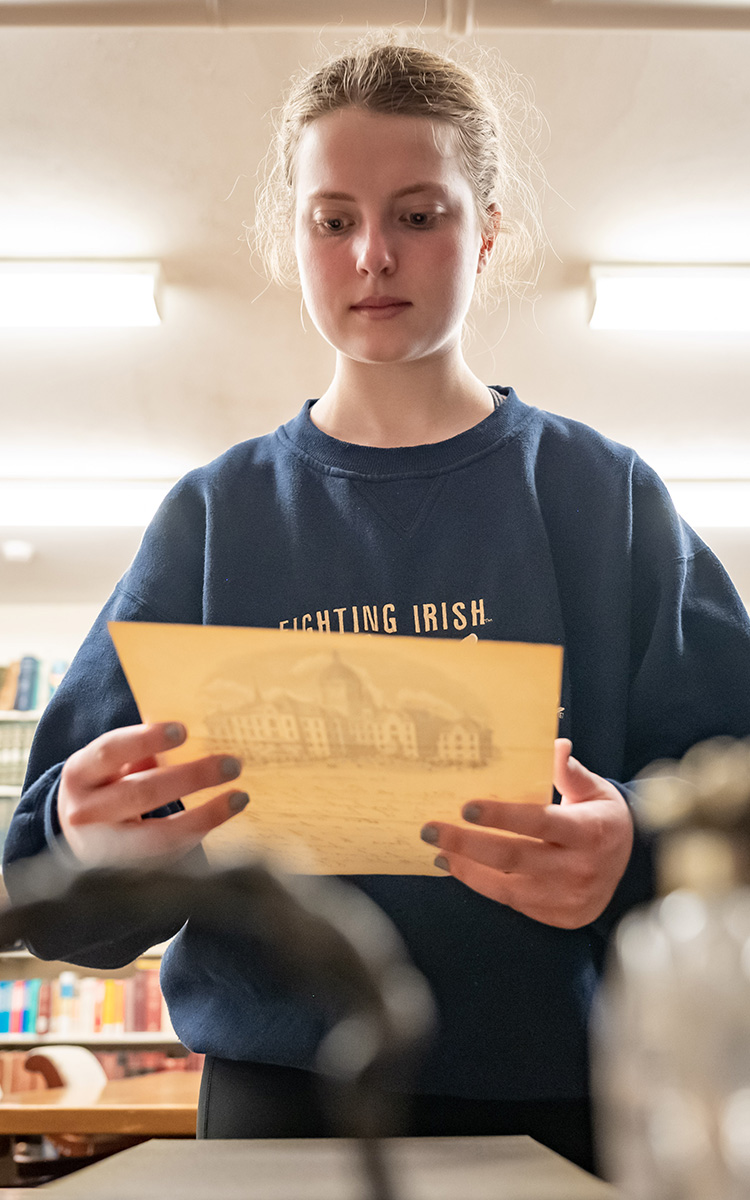Thanks for signing up!
Access your favorite topics in a personalized feed while you're on the go.
Thanks for signing up!
Access your favorite topics in a personalized feed while you're on the go.
Thanks for signing up for our daily insight on the African economy. We bring you daily editor picks from the best Business Insider news content so you can stay updated on the latest topics and conversations on the African market, leaders, careers and lifestyle. Also join us across all of our other channels - we love to be connected!

Imagine landing at your dream travel destination, stepping off the plane and being able to converse with the locals… without spending the year prior mastering the language.
Though it sounds too good to be true, it’s a real scenario with Mymanu CLIK S: Award-Winning Translation Earbuds.
This wireless device lets you speak in over 37 languages, giving you the ability to communicate with more than two billion people. And right now it’s on sale for $157, 28% off the usual price, for a limited time.
The Mymanu is a small wireless device you wear in your ears, like your earbuds. And like most wireless earbuds, they can play music in HD sound, answer calls, and read your texts and notifications, but there’s one thing that sets them apart: they can also provide real-time speech-to-speech translation.
Translate a conversation as it happens by speech or text, whether its a one-on-one talk or group chat. A clip board shows all the translation in a text, while the proprietary system enables speech-to-text and text-to-speech translations quickly depending on your preferences. This feature allows you to spend more time with locals, connect with people you’d otherwise not be able to speak with and enhance your overall travel experience.
Your frequently used phrases will be saved, and you’ll receive customized and personalized ads while you travel that could elevate your trip. They run for 30 hours on a single charge, and include various sized memory foam ear tips so you can ensure comfort and a secure fit.
Winner of the Red Dot Design Awardee and a 2019 CES Innovation Awards Honoree, the Myanmu is a hit with users. Customer Michael raved, “Have found the group translation works brilliantly.” And Kevin noted, “Does as it says, I was scepticle at first but I am very impressed!”
Open up a world of possibilities with the Mymanu CLIK S, now on sale for $157 for a limited time.
Prices subject to change.
Published: 10/14/2022 6:45:55 PM
Modified: 10/14/2022 6:46:02 PM
DEAR PC DOCTOR: I text with my kids and grandkids all the time. One of them took me aside recently in a private chat and let me know I’m using some emojis wrong. Yikes! I didn’t even know that was possible. Is there an emoji dictionary or guide to usage I can look at? Apparently, they’ve been having a good laugh at some of my gaffes.
—Thanks, Grandad
Dear Grandad: There’s no “official” or authoritative dictionary of emoji meanings. One good place to start for basic meanings is emojipedia.org.
However, if you’re comfortable with the internet, do a Google search for “hidden meanings of emoji” and lots of options will appear. Some emoji are benign, some have very strong emotional meanings, and some, of course, have come to have sexual and drug meanings. There are also quite a few YouTube videos highlighting the most frequently misused emoji.
To make things more complicated, just as with spoken and written language, emoji meanings aren’t static; meanings change over time and how they’re interpreted can change depending on who is sending them and who is receiving them. Linguist Gretchen McCulloch has a whole chapter on the history and use of emoji in her recent book, “Because Internet.”
I hope this helps! Until next time, happy computing!
Editor’s Note: Questions should be directed to PC Doctor, care of the Athol Public Library, info@athollibrary.org or Athol Public Library, 568 Main St., Athol, MA. 01331.
It is a far more challenging task than it may first appear, said junior Dan Krill, who took the class last spring. The use of unfamiliar idioms and colloquialisms from 19th-century French, references to unknown people or places and handwriting that is difficult to decipher all add to the complexity.
“On the first day of class, we did a practice translation, and that’s when I realized, oh, it’s not going to be that simple,” said Krill, a computer science major and French minor. “There are so many things to consider, so many historical and linguistic questions, but it’s also really cool. It’s almost like solving a puzzle when you’re piecing this whole message together.”

One letter in particular stood out to both Krill and his partner from the class, junior Monica Leon, who is majoring in political science and French. The letter, which was written to Father Sorin from a Brother Julien who sought to come to the U.S. to work at the University after having taken his vows, seemed indecipherable to them on their first reading.
It was only when Father Haake challenged the pair to read the letter aloud that they began to understand that Brother Julien, who had not had much formal education, was writing phonetically. The moment allowed them to think about the French language in a new way.
“There were a lot of spelling and grammatical errors that made the language really difficult to understand at first,” Leon said. “But Father Greg encouraged us to read the letter out loud and sound out the words, and that’s when it started to make sense. And it ended up being such an interesting exercise. I’m so grateful for Father Greg’s guidance and help throughout the entire process.”

While the students typically work with high-quality PDF copies of the letters, Father Haake also sets aside a day each semester for the class to visit the University archives to view the original letters, along with other artifacts from Father Sorin, including a Bible, a passport, a pair of his glasses and a pen set.
Even though the class was only one credit, it was a deciding factor for Leon in choosing to pursue a French major — and an experience that has given her a deeper appreciation of the University’s mission and founder.
“You know, there’s the side of Notre Dame that everyone knows. It’s a prestigious school, a great football team, but it’s so much deeper than that,” Leon said. “Notre Dame really cares about the community and the world. There are so many students here who are passionate about going out into the world to do service. And that’s exactly what Father Sorin wanted for Notre Dame, and I like to think that he would be proud.”
Father Haake, who is spending this year as a faculty fellow of the Notre Dame Institute for Advanced Study, plans to focus on Father Sorin’s personal correspondence with his family when he teaches the class again next year, including letters to and from his nephew Rev. August Lemonnier, who became the University’s fourth president.
With funding from the Vernon Brink Family, Father Haake is also working to launch a website that will feature a digital exhibit of the letters alongside their transcriptions and translations. He hopes the translated letters will not only be a valuable resource for scholarly research, he said, but provide inspiration to the Notre Dame community.
“I look to Father Sorin when I'm having difficult days in my job as a priest and a professor, and I think of his perseverance, his zeal and just his abounding energy for this place and for educating young people,” Father Haake said.
“He wanted Notre Dame to make a difference in the world. He wanted to make people’s lives better, and he was relentless in doing it. It’s that spirit and that energy that inspires me, and I hope he inspires others, too.”
“Voilà pourtant notre maison commencée, Dieu sait quand elle sera finie.”
“Yet our house is begun, God only knows when it will be finished.”
— Rev. Edward Frederick Sorin de la Gaulterie, C.S.C., Sept. 3, 1843
Produced by the Office of Public Affairs and Communications

Merriam-Webster
Peter Sokolowksi
In the past, it wasn't unusual to hear a teacher say, “‘Ain’t’ ain’t a word, because ‘ain’t’ ain’t in the dictionary.” Well, ain’t is now in the dictionary along with thousands of other words that have gotten added over the years.
Peter Sokolowski says between 500 and 1,000 words get added to the dictionary every year, including 370 last month. Sokolowski is editor-at-large at Merriam-Webster.
The Show spoke with him to learn about the selection process.

frantic00 // Shutterstock
Woman reading menu in cafe
Dictionary Day is Oct. 15, and it’s a day for word lovers everywhere to revel in the many different meanings of words. For word lovers who also appreciate travel, it’s a day where they can learn not only about what words mean in the United States, but also what they mean worldwide.
Stacker used a variety of sources, such as ShermansTravel, Merriam-Webster.com, Bookstr, and others, to compile a list of words that are used in the United States but mean something different abroad.
In some places, using the word “entree” the way it’s used in the United States could mess up a food order. Using “brat” to describe someone might not have a negative connotation; if someone wants to take you out to eat some “glass,” this isn’t bad. In the United Kingdom, words such as “pants” and “braces” mean entirely different things than what they do in the United States, which might cause confusion while shopping or when socializing—and, in Ireland, “grand” is a far less complimentary word than it is in the United States. “Thong” and “barf” mean some pretty different things outside the United States, too.
Keep reading to learn about words that mean different things in the U.S. and abroad.
You may also like: 100 iconic moments from music history
![]()

UfaBizPhoto // Shutterstock
Couple with menu in a restaurant
When diners use the word “entree” in the United States, it’s usually at a restaurant ordering a main dish, whether a bowl of spaghetti bolognese or a plate of seared salmon with greens on the side. In Australia, however, “entree” means “appetizer,” the food that comes before the meal. Don’t worry, though—when Down Under and ordering a main dish that sounds appetizing to you, simply tell the Aussie waiter that you want to order a main.

MNStudio // Shutterstock
Traveler taking in view of Slieve League, the highest sea cliffs in Ireland
In the United States, the word “grand” means impressive or stately, so it’s a word that might describe a large, imposing building or a majestic view. However, in Ireland, “grand” is a much less powerful word, meaning “alright or fine.” So if you’re visiting that country, make sure not to accidentally describe your hotel, the restaurant you’re dining at, or the city you’re visiting as grand.

Koltsov // Shutterstock
Two brothers sitting on pier by water
When someone uses the word “brat” in the United States, they’re usually referring to a kid kicking and screaming in the middle of a store or a spoiled teenager. However, in Ukraine, “brat” means “brother,” so it has a much more positive connotation—unless you happen to have a brother who is also very spoiled or badly behaved. “Brat” in Ukrainian also means a religious group member or a fellow member belonging to any group.

sebra // Shutterstock
Woman holding glass of water
“Glass,” in the United States, refers to the material made of melted sand used to make windows, vases, and glasses. However, in Dutch, “glass” means something different: ice cream. So when visiting the Netherlands, don’t panic if invited out to eat some glass—just enjoy the dessert.

Canva
Man wearing jeans and union jack flip flops on grass
In the United States, the word “thong” means a type of underwear and brings back memories of the 2000s and Sisqó’s seminal song, “Thong Song.” However, using this word in the United Kingdom while shopping will only cause confusion. In the United Kingdom, “thong” means a pair of flip-flops worn on a completely different part of your body. Australians also use the term “thongs” to refer to a pair of flip-flops, though they sometimes call these shoes “double-pluggers.”
You may also like: 100 best movies of all time

Di Studio // Shutterstock
Man dressed in pants, jacket, vest and shoes leaning against wall
Another word that might cause confusion while shopping in the United Kingdom is “pants.” In the United States, “pants” means trousers, but in the United Kingdom, “pants” means underwear, and trousers are called “trousers.” People there also use pants as a slang term for “awful”—so if you wanted to use all these words correctly in one sentence while raising a few eyebrows at the pub, you might say, “The weather is so pants today that the rain has soaked through both my trousers and my pants.”

David Gyung // Shutterstock
Smiling professional asian woman with positive fist gesture
When people are “fighting” in the United States, they’re brawling. It’s a pretty violent word in this country, but it doesn’t have this connotation in Korea. In Korean, “fighting” is a word people use to encourage someone currently facing an obstacle, and it means something close to “cheer up.” So, when visiting Korea, If someone uses this word, don’t take it as an insult and feel encouraged instead.

Soloviova Liudmyla // Shutterstock
Backpacker standing in snowy mountain landscape
“Barf” in the United States refers to vomit and usually elicits a feeling of disgust when it comes up—figuratively or literally. However, “barf” means “snow” in Urdu and Hindi, both spoken in India. Barf also means “snow” in Farsi, a language spoken in Iran, Afghanistan, and Tajikistan. So if you’re traveling to one of these places and someone says, “Look at that barf,” you should put aside all thoughts of vomit and look out to enjoy the beautiful view full of snow.

ImYanis // Shutterstock
Hands using smartphone at night
In the United States, “handy” means useful. In Germany, however, “handy” means a “cell phone.” When traveling through a part of Europe where people speak German, such as Germany, Austria, or Switzerland, just remember it’s handy to have your cell phone to look up directions or translations.

SFROLOV // Shutterstock
Man holding suspenders
In the United States, the word “braces” refers to a device for straightening teeth. In the United Kingdom, however, “braces” refers to suspenders. If someone is talking about the stylish braces they recently purchased, there’s no need to start talking about how brave it is when adults choose to get those orthodontic devices.
You may also like: 5 types of pet allergies and how to treat them